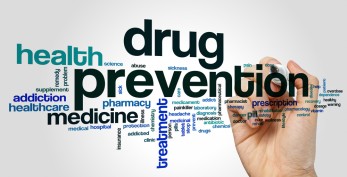Search
Prevention
Reducing the risk factors and enhancing the protective factors associated with initiating substance use.
Material Hardship, Perceived Stress, and Medication Adherence among Treatment-Experienced People Living with HIV in Rural Zambia
Rainier Masa, Gina Chowa
Introduction: The intersection of poverty and HIV/AIDS creates a cycle, with poverty increasing risk to HIV exposure and infection, and HIV/AIDS in turn heightening vulnerability to poverty. Further, economic...
Indicated Prevention of Anxiety and Depression in School Children
Kristin Martinsen, Simon-Peter Neumer, Solveig I Holen, Anne Mari Sund, Joshua Patras, Lene-Mari Rasmussen, Frode Adolfsen, Mona Elisabeth Løvaas, Marit Loetveit Pedersen, Trine Waaktaar
Introduction: Anxiety and depression are common...
UK Biobank: An Open Access Population-Based Prospective Study of 500,000 Participants
Jo Holliday, Thomas Littlejohns, Ligia Adamska, Cathie Sudlow, Nicola Doherty, Naomi Allen
Introduction: UK Biobank was created as an open-access resource for the investigation of the genetic, environmental and lifestyle determinants of a...
Prevention Programs for Eating Disorders and Obesity in Germany
Luise Adametz, Felicitas Richter, Julia Mühleck, Katharina Wick, Bernhard Strauß, Uwe Berger
Disordered eating and partial eating disorder (ED) syndromes are widespread in childhood and adolescence. They are associated with decreased...
Evaluation of an Online Parenting Programme Based on ‘the Little Parent Handbook’
Margiad Elen Williams, Dawn Adele Owen
Introduction: Whilst there are evidence based services for parents of children with identified behaviour problems, the demands on parents have increased and now many parents are seeking advice on...
Results of the Spanish Cultural Adaptation of the Strengthening Families Program 12-16
Carmen Orte, Lluís Ballester, Joan Amer, Marga Vives, Maria Antònia Gomila, Rosario Pozo, Belén Pascual, Karol L. Kumpfer
Introduction: The Family Competence Program (FCP) for 12 to 16-year-old teenagers is the Spanish adaptation of the...
Predictors of Treatment Response Following Parent Management Training: Child, Context, and Therapy Factors
Terje Gunnar Ogden, Kristine Amlund Hagen
Parent Management Training- the Oregon model (PMTO) was introduced as a treatment alternative to families in both child welfare services and child psychiatric out-patient clinics in Norway, in 2001...
A Qualitative Assessment of the Cultural Adaptation of the Familias Unidas Prevention Program for Use in Chile
Maria Luisa Correa, Daniela Castillo, Yannine Estrada, Marcelo Sánchez, Guillermo Prado
Introduction: Familias Unidas is an evidence-based substance use and sexual risk prevention program, designed originally for Hispanic families in the...
The Intersectoriality in the Implementation of Public Policy for Drug Prevention
Lílian Patrícia Silva de Souza, Eliana Berger, Edileuza Monteiro, Francisco Bastos
The Public Ministry of the state of Rio Grande do Norte, has requested strategies in prevention actions for the use/misuse of drugs from the National...
Strengthening Families Program: Evaluation of Implementation Quality and Social Validity
Sheila Giardini Murta, Luis G. A. Vinha
The enhancement of positive parenting practices, family cohesion and family values has been shown to be one of the ways to prevent drug abuse among young people. The Strengthening Families Program...
Drug Use in Adolescence: Association with Gender, Parenting Practices, Self-Efficacy and Future Time Perspective
Luis G. A. Vinha, Nayara D M A A Khouri, Sheila Giardini Murta
The use of both illegal and legal drugs among adolescents poses a serious problem to societies worldwide. In this sense, it is fundamental to determine the risk and protective...
Measuring Community Readiness for Implementing Preventive Interventions in Colombia and Chile
Arthur de Oliveira Correa, Eric C. Brown, Nicole Eisenberg, John S. Briney, Juliana Mejía-Trujillo, Daniela Castillo, Marcelo Sánchez
Introduction: The increasing use of evidence-based preventive interventions in Latin America has produced...
Cultural Adaptation of the Strengthening Families Program in Brazil
Clarisse Moreira Alo, Marina Pedralho, Juliana Seidl, Mariana Russo Voydeville Damasceno, Viviane de Paula Rocha, Camila de Aquino Morais
Introduction: The Strengthening Families Program (SFP) was originally developed at the University of...
Examining School Connectedness and Educational Aspirations as Protective Factors for Alcohol Use among Adolescents in Uruguay
Stephanie Ayers, Flavio F. Marsiglia, Stephen S. Kulis, Elizabeth Kiehne, David Alarcón, Carlos Libisch
In Uruguay, alcohol use is pervasive among adolescents between the ages of 13 and 17 (past year use: ~ 60%, past month use: ~ 40%)...
میکسیکو کے نوجوانوں میں تشدد اور مادہ کے استعمال کا مشترکہ واقعہ
سٹیفنی آئرس، فلاویو ایف مارسیگلیا، اسٹیفن ایس کولیس، پال سموکووسکی، اینیڈ گونزالویز
میکسیکو میں تشدد کا بڑھنا اور پھیلنا ایک فوری تشویش ہے کیونکہ اس کے پریشان کن، وسیع پیمانے پر اور کمیونٹیوں پر تیزی سے اثرات مرتب ہو رہے ہیں۔ مجرم، متاثرہ...
Prevalence of Teen Dating Violence and Its Association to Substance Use in Nicaraguan Early Adolescents
Vi D. Le, Jonathan Pettigrew, Jeff R. Temple
Background: Teen dating violence is a significant public health issue with potentially severe mental, physical, and psychosocial health consequences. Much of the literature on dating violence is...
Psychological Distress, Family Functioning and Use of Psychoactive Substances in Administrative Workers of an Institution of Higher Education in Nicaragua
Alinka Patricia Avendaño Balladares
Introduction: Professionals in the field of mental health and addictions try to identify situations that cause psychoactive substances use in the population, especially the working population, due to...
Prevalence and Risk of Alcohol and Tobacco Consumption in Basic Education Students in Three Public Schools in El Salvador
Fabio Bautista-Pérez
Introduction: In El Salvador, according to studies the most consumed legal drugs are alcohol, tobacco and cannabis that is illegal, which is according to studies conducted in various parts of the world. In the country...
Influence of Cumulative Contextual Risk on Academic Performance and Substance Abuse
W. Alex Mason, Mary B. Chmelka, Stacy-Ann A. January, Jukka Savolainen
Introduction: Children exposed to cumulative contextual risk (CCR) are vulnerable to experiencing adverse outcomes, including academic failure as well as substance use...
Antiretroviral Therapy (ART) Is the Most Essential Intervention among People Who Inject Drugs (PWID) to Achieve Reduction HIV Transmission through Pwid to Others in Myanmar
Rosie Myint, Wah Wah Lwin
Background: There is a sustained downward trend in HIV prevalence among the sentinel groups which include People Who Inject Drugs (PWID) reflecting the effectiveness of programme for safer sexual behaviors and...
Share the Knowledge: ISSUP members can post in the Knowledge Share – Sign in or become a member



